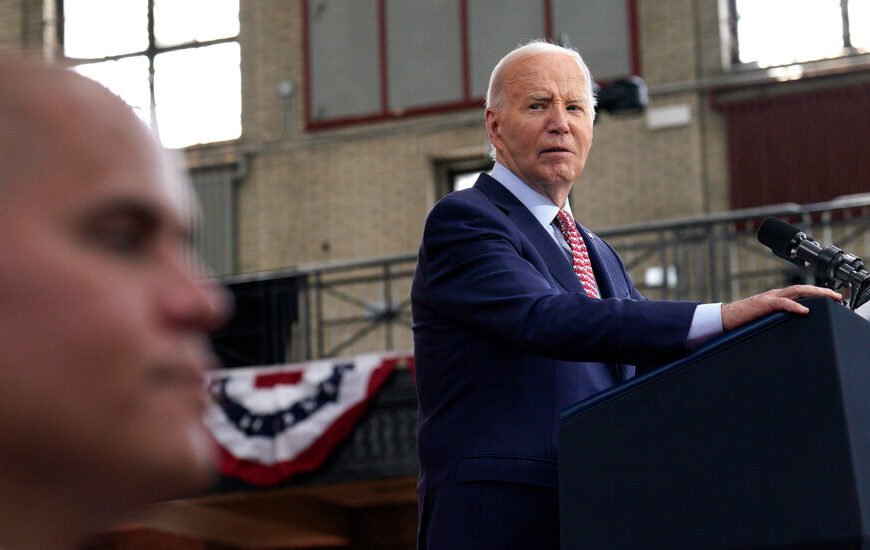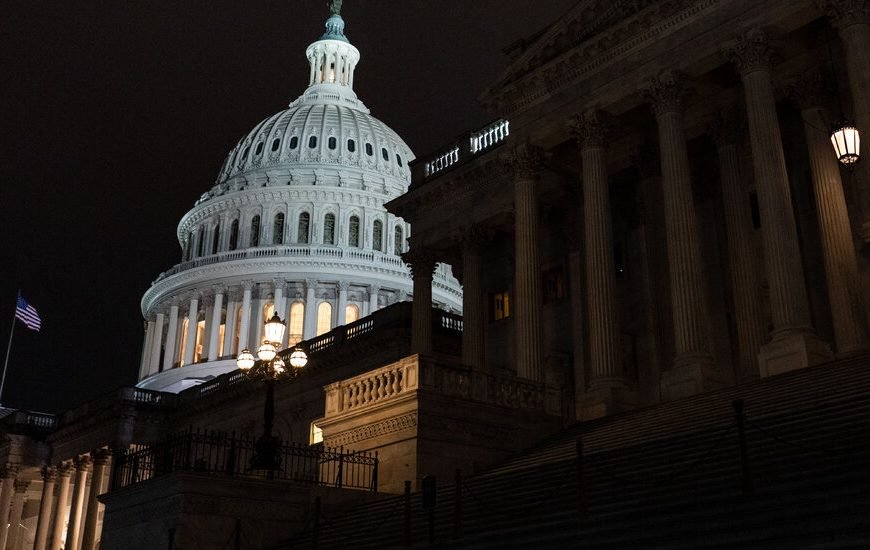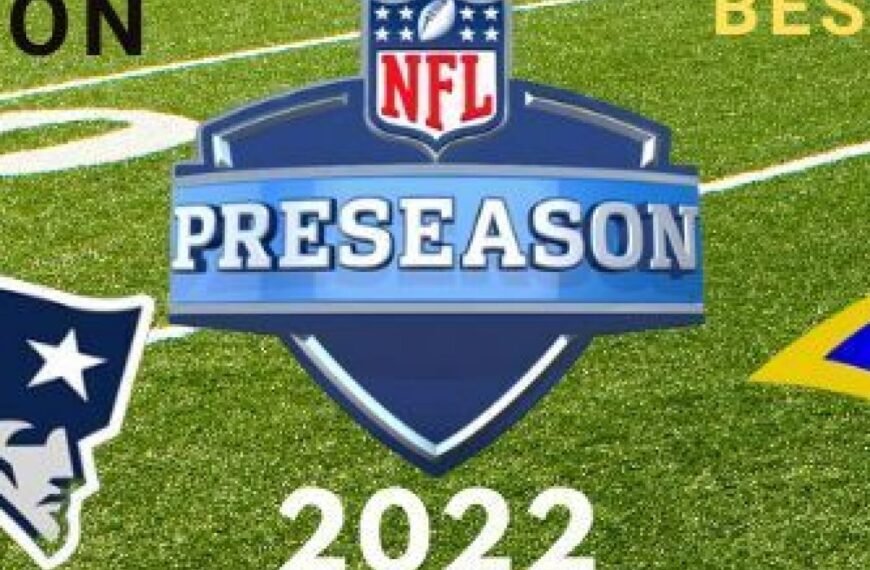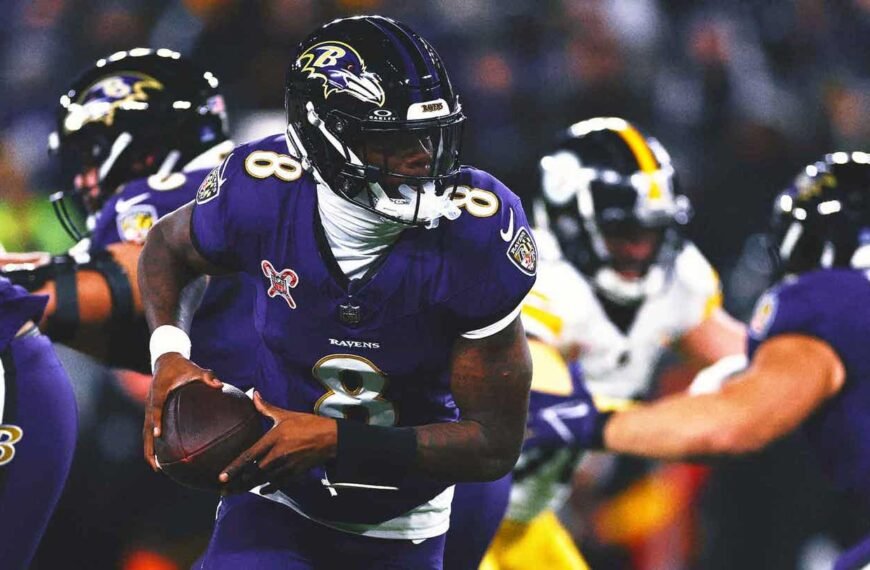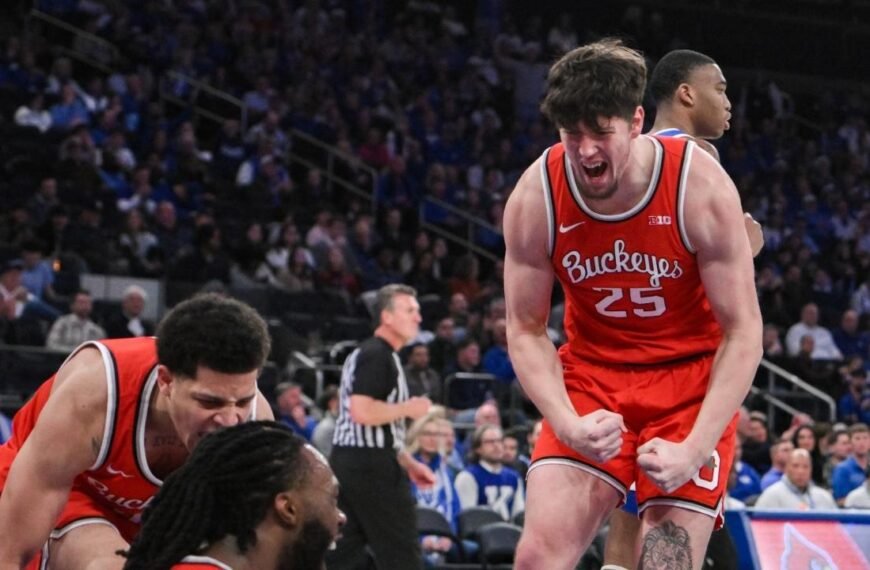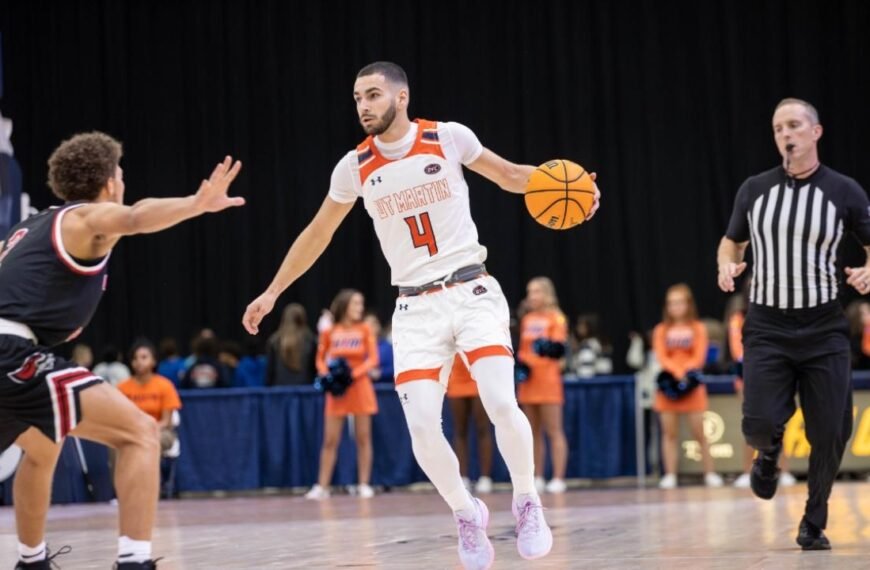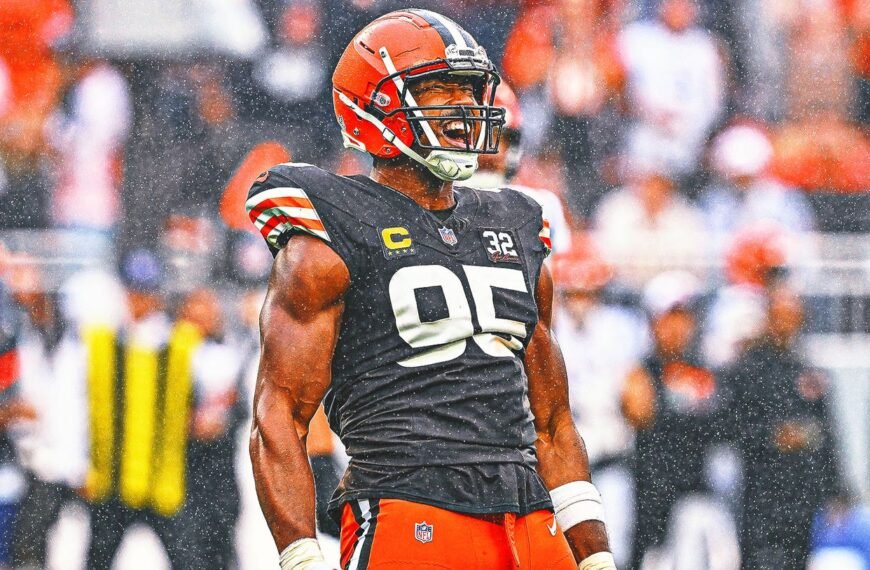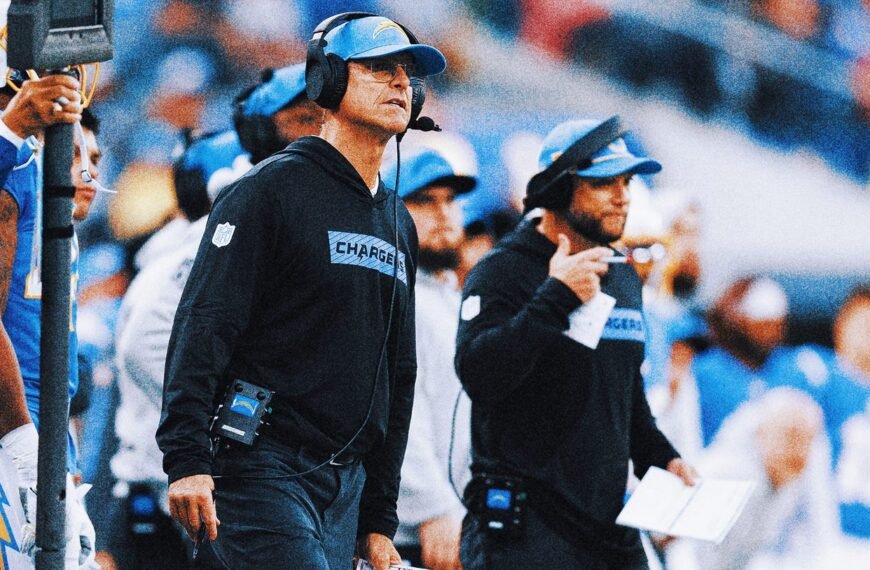With every election cycle, the notion of genuine swing voters seems to grow more remote. We live in an era of intense partisanship, and only a handful of states are truly competitive in the Electoral College.
To make matters even more stark, the 2024 presidential race is shaping up to be a contest between a current and a former president who have been in public life for decades. Like them or not — and many voters fall into the latter category — most people made up their minds about President Biden and former President Donald Trump years ago.
When I asked Patrick Murray, the director of the polling institute at Monmouth University, about who the persuadable voters of 2024 might be, he quipped: “You want me to name them individually? Because I probably could at this point.”
And yet, even in a likely rematch, and at a moment of deep political tribalism, a few constituencies — a slice of a slice of a slice of the electorate — remain up for grabs. You can be certain that both campaigns will be spending hundreds of millions of dollars to reach them.
In interviews with pollsters and political strategists this week, some raised familiar questions about groups of voters who have been closely studied in the last several election cycles.
Can Republicans make inroads with the suburban women who have pivoted sharply away from the party in the Trump era? Can Democrats win back Latino men, especially those without college degrees? What do those Trump 2016-Biden 2020 voters do now?
In the seemingly inevitable rematch between Biden and Trump, there are also other, less traditional ways to think about persuadable voters.
Here are a few key groups to watch:
The double haters
The voters who dislike both major-party candidates have played key roles in the last two presidential elections, ultimately tilting toward Trump in 2016 and Biden in 2020. Those voters are poised to be even more pivotal this year.
“That is likely to be a larger group than it has ever been in the past,” said Whit Ayres, a veteran Republican pollster. “They’re people who believe both men are too old to serve effectively. They want somebody who’s younger.”
Will it be Trump or Biden who persuades more of those voters to hold their noses and reluctantly back them? Can the double haters be persuaded to pull the lever for a less-than-compelling major-party candidate, rather than voting for a third-party option? Can they be convinced to turn out at all?
The result could tip the election in the crucial battleground states.
“They tend to be overwhelmingly blue collar, they tend to be a little bit more female, they tend to be a little bit older,” said Celinda Lake, a prominent Democratic pollster. “They are also inclined to vote for third parties, particularly the younger end of them.”
She called the double haters “the most important category that no one is talking about.”
The non-tribalists
For many Americans, political allegiances have become so central to their identities that disputes can break up friendships, divide families and cause marital strain — tensions that have been supercharged in the Trump era.
White evangelical Christians, for example, were once associated with regular church attendance and opposing abortion rights. Now, as my colleagues Ruth Graham and Charles Homans have reported, being evangelical also often describes “a cultural and political identity” in which Trump plays an outsize role.
“Politics has become the master identity,” Ryan Burge, an associate professor of political science at Eastern Illinois University and a Baptist pastor, told Ruth and Charles. “Everything else lines up behind partisanship.”
But that’s not universal. Murray of Monmouth said that there were still some voters whose identities were not closely tied to their politics — and they might be up for grabs. “Those are the persuadable voters,” he said, “that don’t buy into kind of these doomsday scenarios that both parties are putting out if the other party wins.”
It is difficult but not impossible to identify those voters by looking at the strength of their party identification “and the extent to which they accept the validity of the other party,” he said. But they most certainly exist, and they could loom large in a closely fought election.
“It’s not about demographics, per se, or economic concerns or issue concerns,” he said, but rather the extent to which “they have translated their sense of self in society into a political identity.”
The can’t-back-a-felon Republicans
Trump faces 91 felony counts across four criminal indictments, with one trial set to begin on March 25.
This is uncharted territory: No former U.S. president has faced even one criminal indictment. And as my colleagues Maggie Haberman and Jonathan Swan wrote, the potential political consequences for Trump stemming from the first trial, concerning a hush-money case, are far from clear.
Republicans have long been circling the wagons around Trump, especially concerning those charges.
But for now, polls also show that at least some Republicans would have trouble backing Trump should he be convicted of a felony. And pollsters are watching those voters carefully.
“If Donald Trump should be convicted of a felony by a jury, it’s pretty clear that about one-fourth of Republicans would be looking for an alternative,” Ayres, the Republican pollster, said.
A New York Times/Siena College poll in December, which reached a similar conclusion, also found that another 20 percent of those who identified themselves as Trump supporters said he should go to prison if he is convicted in the federal case in Washington, in which he stands accused of plotting to overturn the 2020 election. And 23 percent of his supporters said they believed that he had committed “serious federal crimes,” up from 11 percent in July.
The people who, for now, are expressing reservations about supporting Trump if he is convicted are likely to be “better-educated voters who are not very conservative,” Ayres said. “Generally, they’re a group of people who believe that a convicted felon should not be head of the Justice Department,” he added.
Some could sit out the election or vote third-party, or support down-ballot Republican candidates but skip the top of the ticket. And certainly, come election time, many Americans will ultimately put on their red or blue jerseys.
This one’s going to sting
Donald Trump took a huge hit today in the two places where it tends to hurt him most: his wallet and his business-wizard image.
A state judge in New York ordered Trump to pay penalties of $355 million, plus interest, for engaging in years of fraud by lying about the value of his real-estate portfolio. As part of his decision, the judge, Arthur Engoron, also barred Trump from running any New York company — including his own, the Trump Organization — for three years.
The company has been at the center of Trump’s public persona as a wealthy businessman for decades. And in the slimmest of silver linings for Trump, Justice Engoron did not permanently take control of it away from him. Still, the ruling — should it hold as Trump files an appeal — will have significant ramifications for the former president’s holdings.
Whatever financial pain Trump now faces was rivaled by the damage the decision dealt to his ego and to his image as a jet-setting billionaire and take-charge chief executive, a carefully crafted public face that helped to vault him first into reality-television stardom and then into the White House.
“Their complete lack of contrition and remorse border on the pathological,” Justice Engoron wrote of Trump and his co-defendants in the case, including his two adult sons, Eric and Don Jr.
The judge went on to say that the accusation of “inflating asset values to make money” was “not a mortal sin” and that Trump, his sons and two of his top aides at the company “did not rob a bank at gunpoint.” And yet, Justice Engoron concluded, “defendants are incapable of admitting the error of their ways. Instead, they adopt a ‘See no evil, hear no evil, speak no evil’ posture that the evidence belies.”
It was not immediately clear how soon Trump and the others, who faced smaller judgments, will have to come up with the money. The provision in the ruling barring Trump from applying for any loans in New York in the next three years could make it challenging to obtain the bond he would need to post with the court as he appeals the decision.
Trump’s lawyer, Alina Habba, described the ruling as a “manifest injustice — plain and simple. It is the culmination of a multiyear, politically fueled witch hunt that was designed to ‘take down Donald Trump,’ before Letitia James ever stepped foot into the attorney general’s office. Countless hours of testimony proved that there was no wrongdoing, no crime and no victim.”
— Alan Feuer and Maggie Haberman
Trump privately supports a 16-week abortion ban
Former President Donald Trump has told advisers and allies that he likes the idea of a 16-week national abortion ban with three exceptions, in cases of rape or incest, or to save the life of the mother, according to two people with direct knowledge of Trump’s deliberations.
Trump has studiously avoided taking a clear position on restrictions to abortion since Roe v. Wade was overturned in the middle of 2022, galvanizing Democrats ahead of the midterm elections that year. He has said in private that he wants to wait until the Republican presidential primary contest is over to publicly discuss his views, because he doesn’t want to risk alienating social conservatives before he has secured the nomination, the two people said.
Trump has approached abortion transactionally since becoming a candidate in 2015, and his current private discussions reflect that same approach.
One thing Trump likes about a 16-week federal ban on abortions is that it’s a round number. “Know what I like about 16?” Trump told one of these people, who spoke anonymously to describe a private conversation. “It’s even. It’s four months.”
— Maggie Haberman and Jonathan Swan


